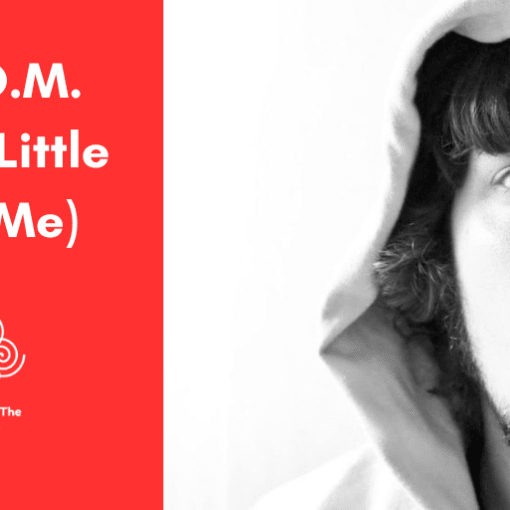Are you tired of being the Scapegoat but don’t know how to stop it? Six key steps to stop being the dumping ground of other people’s rubbish.
She felt like they were making her a scapegoat.
They were saying she was responsible for all the terrible things that had happened. It was her fault. Everything bad that happened was her responsibility.
This was a pattern of abuse she had experienced for a very long time. Jenny remembered as a child that once her mother had broken a cup, but somehow it was her fault. Then, the vicious words rained down.
Now it felt like she was a human receptor for other people’s stuff.
She was wired for it. Anything that went wrong, she took the blame.
Even when they didn’t blame her or say it was her fault, she still, for some strange reason, felt she was to blame.
She reasoned that it must be something to do with her. She was a failure, and so she caused all these bad things to happen.
Jenny had a big ugly, smelly goat bleating in her brain.
This belief entered early into her brain when she started to receive the abuse of others. Then she took it on as part of her identity.
The scapegoat was as much of her identity as goat’s cheese is made of goat’s milk.
Her depression was worsening as the guilt and shame piled up. Her anxiety was building as she waited for the next guilt-filled message to be handed out and for her to take in.
She was tired. Really tired. The goat, and its bleating, was keeping her up at night and alert all day.
But now, she was beginning to wake up to the bleating, blahhing, and destructiveness of its voice.
What is a scapegoat? Read more about this in the previous post
Do You Have a Scapegoat in the Backyard of Your Brain?
How to stop being the scapegoat
We can’t control how other people treat us. That is solely in their hands, but we can control how we respond to what they say and do. As a result, we can learn to care for our inner self and give it the love and respect it truly deserves.
Here are six key steps to stop being the scapegoat
1. Know your worth and value
As a little question, on a heart level, and in all honesty, do you consider yourself as having incredible worth and value. On a scale of one to ten, what does your heart truly say?
‘1’ being of not much value to ’10’ being I have incredible value and beauty.
What we say and believe about ourselves can be like a huge display sign.
For some people, they give off an invite of being a dumping ground.
‘Here I am – dump your toxic waste here,
done it all my life,
part of my identity,
dispose of your garbage here’.
 Whereas others know the beauty and worth of their soul.
Whereas others know the beauty and worth of their soul.
‘No dumping allowed,
too much beauty here to be contaminated by your garbage,
move on,
take responsibility for your own stuff’.
They come to understand their beauty and value as being like a lost coin but now found, as an object of angels rejoicing, a beautiful pearl you would sell everything to get, a treasure hid in a field, and a child loved by a parent.
2. Discover who is crossing the line
There’s a line.
A thin invisible line where all the communications cross over. Some people call it a boundary. I prefer to call it a line.
It’s called a line of love and respect.
You may have heard people say, ‘You’ve crossed a line,’ well it’s that line. That line where you know something is not right. Where people have been intrusive without an invite.
You have to learn about your line and to take note of who keeps crossing the line.
Who is the one looking to scapegoat you?
Who is playing the blame game?
Who is projecting and vomiting stuff onto you that has nothing to do with you?
Who keeps crossing your lines of love and respect?
Don’t victimize yourself or get angry with them. Just take a gentle ‘note to self’ of when this happens and who does it.
3. Ask some Questions
Asking some questions gives the brain a new track to go down.
Instead of being a receptor, start to be a questioner.
What is mine to own, ours to share, or totally theirs?
1. Is this mine to own?
Did I do this? Is it my responsibility? We all make mistakes, bad choices, sin, miss the mark, and are ‘guilty as charged.’ Own it. It’s ok. We are all human.
2. Is this ‘ours.’ A shared responsibility?
They’re trying to make you feel fully responsible, but as you think things through, you recognize that others were involved. So take responsibility for what you did but also realize that others failed too. Check out What Swiss Cheese taught me about forgiveness.
3. Is this there’s to own?
You had nothing to do with it—their issue, not yours.
4. Wash that goat right out of your hair
Many people need to have the stinky scapegoat stench washed off their souls.
They reek with goat, and it doesn’t serve the beauty and value contained within them.
God wants to wash us with pure, clean freshwater that cleans the dirt and filth out of our lives.
Ezekiel says that God wants to ‘Sprinkle clean water on you, for you will be clean—your filthiness will be washed away’ Ezekial 36: 25
This is where forgiveness and grace are the soap and shampoo for the soul.
Forgiveness and grace are the soap and shampoo for the soul.
We extend the spiritual practice of forgiveness to both ourselves and others. We walk in grace, not condemnation.
5. Defend the Line
We build stronger lines.
To those who seem to have a mission in life to shift blame and not take responsibility for their own stuff, we slowly become more and more like Gloria.

I’m not suggesting you become a violent or over-the-top Gloria, but more so, you need to recognize that you have something valuable inside and that it’s worthy of protection.
When I talk about increasing the pushback and protecting the inner self, I tell people about two dogs. For a time, we had two dogs.
We still have a small little cute thing, a Shitzu Maltese cross. She is cute, yappy, and quite frankly, most visitors don’t feel threatened by her at all. In fact, for all the bark, she quickly runs away when someone comes too close.
The other dog, who sadly died recently, was a pound dog. Big, muscled, jump the fence, rip out your throat-type dog.


Guess who got more respect.
You see, there is a progression.
We start pleasant, but if pleasant isn’t met with respect, we slowly progress in our assertiveness to a point where we may become a ‘Rip the throat out’ type of dog protecting its home.
It’s a skill to learn.
It is about seeing that quiet and beautiful strength within you and having a sign that says ‘No dumping here.’
To defend the line have a few questions prepared for the scapegoater.
So how is that my responsibility?
Why do you think I should take responsibility for something I didn’t have any involvement in?

6. Speak truth to the lies
What are you saying to yourself?
How are you training your brain onto truth-filled paths?
I suggest you take some of these thinking compass points and repeat them to yourself daily.
I am discovering my worthiness of love, grace, and forgiveness, especially self-forgiveness.
I am embracing my humanity and how as a human, I don’t always get things right. It’s ok to fail.
I am taking responsibility for my choices but not the choices of others.
I am holding myself to a standard of grace, not perfection.
I am nobody’s scapegoat. I take responsibility for myself, not for them.
I am nobody’s projector screen. That’s been rolled up and thrown away.
I am discovering that how people treat me may say more about them than it does about me.
I am learning that my response is my responsibility, and their response is their responsibility.
I am nobody’s scapegoat, whipping boy, or doormat. I have incredible worth and value.
I am experiencing the cool, clear waters of God washing the goat stench of shame, blame, and guilt right out of my hair.
Final thoughts – Facts and Feelings
Sometimes we may think people are scapegoating us when they actually aren’t. We feel they are doing this, but it may not actually be the case.
Perhaps there have been so many instances, particularly in childhood, where scapegoating happened and that now there is a ‘Grand Canyon’ sized rut or thinking track in the brain that every negative thing falls into.
So we feel like we are being scapegoated, and so, therefore, it must be true.
Feelings can be misleading and can be terrible guides to the truth. Echoes and ghosts of the past can mingle with the present, and our brain concludes that what we are experiencing in the now is exactly the same as back then.
So we need to gently ask ourselves this question.
Is what I am interpreting in the now, as scapegoating, a feeling or a fact?
Fact-based scapegoating – someone actually blamed you, unfairly, for something that has happened to them. Something you had no responsibility for.
- Tangible evidence of accusation, spoken and or written ‘They said I was the one responsible, but I wasn’t.’
Feeling based scapegoating
- No tangible evidence of accusation – ‘I feel like I am being made a scapegoat.’
Remember that feelings do not make it so.
Now, this is very important to understand, particularly if you have a very sensitive feelings radar.
You pick up on every little aspect of non-verbal communication and believe all your interpretations to be 100% true. They’re not.
No one’s interpretations of communication are 100% true, but the brain wants to keep us safe, and in familiar territory, so we go with what feels safe.
It’s time to care for your inner child and speak loving and compassionate truth to it.
It’s like this: when I was a child I spoke and thought and reasoned as a child does.
But when I became a man my thoughts grew far beyond those of my childhood,
and now I have put away the childish things. 1 Corinthians 13:11
Are you inviting God to heal the brain and mature your thinking away from childhood reasoning?
Time to tell the scapegoat to ‘Sit down and Shut UP’!
Quotes to consider
- No one can make you feel inferior without your consent. Eleanor Roosevelt
- One of the greatest challenges of the spiritual life is to receive God’s forgiveness. There is something in us humans that keeps us clinging to our sins and prevents us from letting God erase our past and offer us a completely new beginning. Henri Nouwen
- The most important things are what God did before I was conceived, before I was born. He knew me, therefore I am no accident; he chose me, therefore I cannot be a zero; he gave me, therefore I must not be a consumer. Eugene Peterson Run with the horses
- If I let someone abuse me verbally, I have done neither one of us a favor. Anne Katherine
- Believing all of my emotions is the shortest way into the loop of insanity. First the truth, then faith in the truth, then the feelings will come around. David Riddell
- To achieve radical change, I need to call some of my feelings ‘liars’ and choose to side with truth against my own emotions, until my feelings come around. David Riddell
- Get control of your feelings before your feelings get control of you. Emotions are not a reliable guide to how things are. David Riddell
- Your feelings are not a reliable guide to what you should and shouldn’t do. They merely reflect sub-conscious beliefs, which may need to be examined. David Riddell
- An important decision I made was to resist playing the Blame Game. The day I realized that I am in charge of how I will approach problems in my life, that things will turn out better or worse because of me and nobody else, that was the day I knew I would be a happier and healthier person. And that was the day I knew I could truly build a life that matters.
Further reading
What Swiss Cheese has taught me about Forgiving Myself and Others
Barry Pearman
Photo by Etienne Girardet on Unsplash
Photo by Seth Doyle on Unsplash
Photo by Despo Potamou on Unsplash





